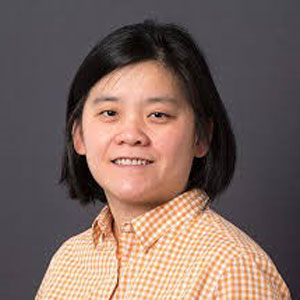Investigating tumour initiating events
Fast facts
- Official title: Understanding the role of histone variants in tumourigenesis
- Lead researcher: Dr Lee Wong
- Where: Monash University, Australia
- When: January 2018 – December 2019
- Cost: £59,500 over two years. This project is co-funded with Worldwide Cancer Research
- Research type: Paediatric & Adult, Low & High Grade, Academic
What is it?
Chromatin regulation refers to the process of DNA being wrapped around special proteins called histones. Previous research has demonstrated that chromatin regulation is often disrupted in many cancers. Mutations, or changes, in histone proteins leads to the initiation of many cancers, including gliomas.
The aim of the research, led by Dr Wong, is to understand the role of a specific histone protein, called H3.3, and how changes in this protein drive tumour growth. To accomplish this, the research team will use stem cells to determine the function of histone protein H3.3. The team will then manipulate this protein and assess the impact these changes will have on the cells.
Why is it important?
A tumour is the abnormal growth of cells, caused by cells in the body dividing in an uncontrolled way. Tumours are named after the type of cell from which they originate. A glioma is a tumour which starts in glial cells. These cells provide protection and support for nerve cells within the brain.
There are three main types of gliomas – astrocytomas, ependymomas and oligodendrogliomas – and they are graded (levels 1-4) based on how fast they grow. Survival rates for individuals diagnosed with gliomas depend on a host of factors, but only 19% of adults diagnosed with a brain tumour survive for five years after their diagnosis. So it’s important that further research is done to inform our understanding of how and why these tumours start.
Who will it help?
Utilising her expertise in biochemistry and molecular biology, Dr Wong aims to identify the fundamental changes underlying gliomas. This understanding will then provide a basis to develop more effective and targeted therapies to treat people diagnosed with gliomas.
Milestones
The research team have finished collecting samples that will help them characterise the function of the histone protein H3.3. They’ve also started mapping how different changes to this protein affect cell growth.
In the upcoming year, the research team will identify all the changes to H3.3 to determine what initiates the growth of tumours.
This page was last updated: 01 March 2019
Research is just one other way your regular gift can make a difference
Research is the only way we will discover kinder, more effective treatments and, ultimately, stamp out brain tumours – for good! However, brain tumours are complex and research in to them takes a great deal of time and money.
Across the UK, over 100,000 families are facing the overwhelming diagnosis of a brain tumour and it is only through the generosity of people like you can we continue to help them.
But, by setting up a regular gift – as little as £2 per month – you can ensure that families no longer face this destructive disease.

Dr Lee Wong
Associate Professor, Biochemistry & Molecular Biology